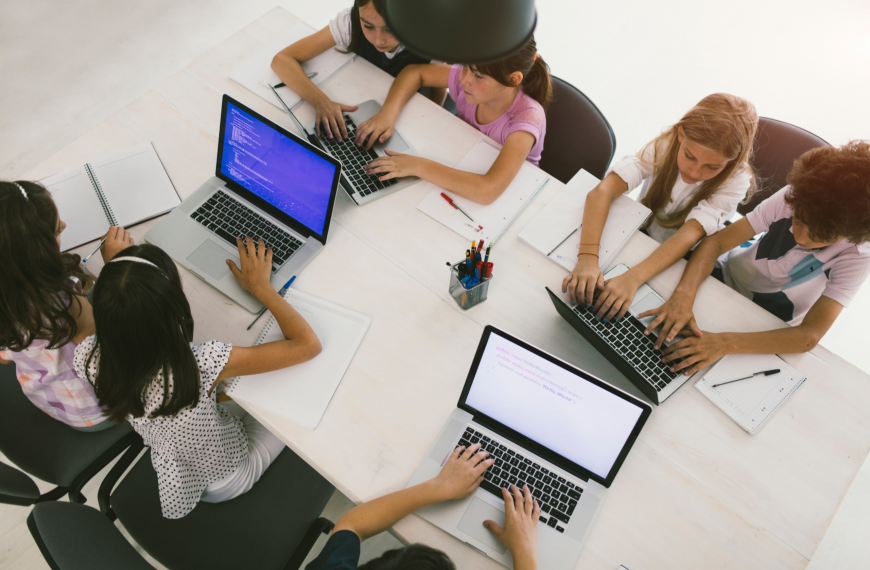
Why Start Coding Early?
Imagine a world where your child is not just consuming technology but actively shaping it. Starting coding at an early age, say six years old, empowers kids to become creators of technology, not just users. It’s a head start in developing critical skills like logical thinking, problem-solving, and creativity during their formative years.
Early exposure also builds foundational computer literacy. Learning mouse control helps kids navigate and interact with a computer, while typing skills improve speed and accuracy. Coding introduces them to cause-and-effect relationships, giving them hands-on experience in how actions lead to outcomes. These skills don’t just prepare kids for coding—they set the stage for lifelong learning.
How to Start Coding Early
Introducing your child to coding doesn’t have to be daunting—it can be an exciting adventure! Platforms like Scratch make it easy for kids as young as six to explore block-based coding through a fun, interactive drag-and-drop interface. For even younger children, ScratchJr offers a simple way to dive into coding concepts before they’ve fully mastered reading skills.
Alternatively, you can connect coding to games your child already loves, like Minecraft and Roblox, transforming playtime into a hands-on learning experience. Minecraft encourages creativity and problem-solving with “redstone” circuits and coding commands, while Roblox introduces game design through level building and scripting. These familiar games provide a solid foundation for learning while allowing your child to develop valuable skills in an engaging, personalized way.
Scratch: Block-Based Coding
Scratch’s block-based coding is fantastic at making the world of programming accessible and intuitive to young learners. It offers simple creative tools for designing characters, stories, and games, all while teaching problem-solving through block-based commands. Beyond the fun of creating, Scratch introduces foundational programming concepts like:
- Sequencing: Understanding the importance of order and cause-effect relationships.
- Loops and Conditionals: Thinking systematically with commands like “repeat” and “if-then.”
- Variables: A key coding concept that allows numbers to be stored in memory and updated in real time, allowing for more impactful programming
- Debugging: Developing critical thinking by identifying and fixing errors.
Kids also gain design skills, customizing characters and backdrops, adding sounds and music, and creating interactive, branching stories. With its safe and collaborative online community, Scratch fosters both creativity and connection.
Minecraft: Learning Through Play
For kids who love video games, Minecraft offers an incredible way to learn through play. Using “redstone,” Minecraft’s in-game circuit system, kids explore basic engineering principles while honing logical thinking. They’ll tackle problem-solving challenges by building contraptions like doors, elevators, and traps, all of which require careful planning and testing.
Beyond redstone, Minecraft commands introduce single-line coding. With commands, kids can spawn items, change weather, or teleport characters, demonstrating instant cause-and-effect relationships. By creating unique gameplay experiences through command sequences, they take their first steps into programming logic. Advanced learners can even explore datapack building, modifying the game itself for endless customization possibilities.
Roblox: Designing for a Global Audience
Roblox turns kids into game designers, providing a platform to build immersive worlds, script gameplay mechanics, and share creations with millions of players worldwide. It’s a crash course in creative expression, teamwork, and entrepreneurial thinking.
Through Roblox, kids learn to:
- Understand Game Structure: Designing levels teaches pacing, objectives, and user experience.
- Collaborate: Working with peers fosters teamwork and problem-solving skills.
- Manage Projects: Publishing games introduces real-world skills like project management and responding to user feedback.
With Roblox, kids showcase their creativity to a global audience while thinking like developers. It’s not just about building games—it’s about building confidence and preparing for the future.
The Bigger Picture
Starting coding early isn’t just about learning a skill—it’s about opening doors. Whether your child dreams of becoming a game developer, an engineer, or simply wants to better understand the technology they use every day, coding offers a powerful foundation. By encouraging them to start young, you’re setting them up to succeed in a world where tech is at the heart of everything.

